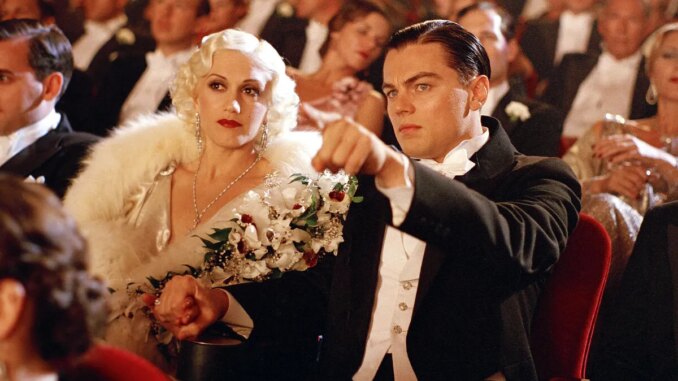
Beyond the Iceberg: Discovering the Leonardo DiCaprio Movie He Loves to Rewatch the Most
Leonardo DiCaprio. The name conjures images of frosted tips clinging to a life raft in the icy Atlantic, a face etched with youthful desperation. For many, he's forever Jack Dawson, the romantic artist who met his tragic end aboard the Titanic. But to define DiCaprio solely by that role is to overlook the breadth and depth of a career spanning decades, a filmography teeming with complex characters and challenging narratives. While the world may still be captivated by his star-crossed lover, the real revelation lies in discovering the Leonardo DiCaprio movie he himself holds closest to his heart, a film he reportedly loves to rewatch the most: "Catch Me If You Can."
"Titanic," while undeniably a cultural phenomenon, catapulted DiCaprio into a level of fame that must have felt both intoxicating and suffocating. He became a teen idol, a heartthrob, a label that risked overshadowing his genuine talent. "Catch Me If You Can," directed by Steven Spielberg and released in 2002, offered him a chance to break free from that mold. It presented him with a character far more nuanced and ambiguous than the valiant Jack Dawson: Frank Abagnale Jr., a teenage con artist who successfully impersonated a pilot, a doctor, and a lawyer before the age of twenty-one.
The film isn't just a thrilling cat-and-mouse chase between Frank and FBI agent Carl Hanratty (Tom Hanks). It's a story of a broken home, a desperate yearning for connection, and a naive understanding of adulthood fueled by childhood trauma. Frank's cons aren't motivated by greed, but by a desire to recreate the family he lost. His scams are elaborate, audacious, and undeniably entertaining, yet they always carry a hint of sadness, a vulnerability that makes him surprisingly relatable.
Perhaps it's this vulnerability that draws DiCaprio back to the film. He gets to inhabit a character who is both charming and deceitful, intelligent and impulsive. Frank is a master of disguise, not just physically, but emotionally. He hides his pain behind a facade of confidence and charisma, a skill that resonates with the pressures of fame. DiCaprio, having experienced the intense scrutiny and expectations of Hollywood, likely understands the need to project an image, to control the narrative surrounding oneself.
Beyond the complex character, "Catch Me If You Can" is a masterclass in filmmaking. Spielberg, at the peak of his directorial prowess, crafts a visually stunning and emotionally resonant film. The 1960s aesthetic is meticulously recreated, from the vibrant fashion to the jazzy soundtrack, immersing the audience in a world of glamour and intrigue. The dynamic between DiCaprio and Hanks is electric, a compelling push and pull between pursuer and pursued. The film avoids simplistic good versus evil tropes, instead painting a portrait of two men who are, in their own ways, driven by similar desires for validation and belonging.
Consider the final scene, where Frank, now working for the FBI, is visited by Carl in prison. They discuss their lives, their choices, their shared connection. It's a poignant moment that underscores the complexities of their relationship. There's no triumphant celebration or definitive resolution, only a quiet understanding between two men who have shaped each other's lives in profound ways.
This lack of easy answers is perhaps what makes "Catch Me If You Can" so enduring. It's not a movie that provides clear-cut moral lessons. Instead, it invites viewers to contemplate the nuances of human nature, the motivations behind our actions, and the consequences of our choices. It's a film that rewards repeated viewings, revealing new layers of meaning and complexity with each watch.
Forget the frozen wasteland of the Titanic. Delve into the vibrant world of "Catch Me If You Can." In doing so, you'll not only discover a truly remarkable film, but you'll also gain a deeper understanding of Leonardo DiCaprio, the actor behind the iconic roles, the artist who finds solace and inspiration in the complexities of Frank Abagnale Jr. He is more than just Jack Dawson, more than just a pretty face. He is a dedicated performer, drawn to stories that challenge him, stories that explore the depths of the human condition, and stories that, like "Catch Me If You Can," continue to resonate long after the credits roll.